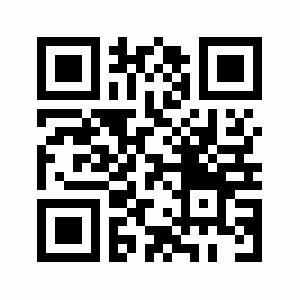COVID-19 FAQ for Community Gardens
go.ncsu.edu/readext?661149
en Español / em Português
El inglés es el idioma de control de esta página. En la medida en que haya algún conflicto entre la traducción al inglés y la traducción, el inglés prevalece.
Al hacer clic en el enlace de traducción se activa un servicio de traducción gratuito para convertir la página al español. Al igual que con cualquier traducción por Internet, la conversión no es sensible al contexto y puede que no traduzca el texto en su significado original. NC State Extension no garantiza la exactitud del texto traducido. Por favor, tenga en cuenta que algunas aplicaciones y/o servicios pueden no funcionar como se espera cuando se traducen.
Português
Inglês é o idioma de controle desta página. Na medida que haja algum conflito entre o texto original em Inglês e a tradução, o Inglês prevalece.
Ao clicar no link de tradução, um serviço gratuito de tradução será ativado para converter a página para o Português. Como em qualquer tradução pela internet, a conversão não é sensivel ao contexto e pode não ocorrer a tradução para o significado orginal. O serviço de Extensão da Carolina do Norte (NC State Extension) não garante a exatidão do texto traduzido. Por favor, observe que algumas funções ou serviços podem não funcionar como esperado após a tradução.
English
English is the controlling language of this page. To the extent there is any conflict between the English text and the translation, English controls.
Clicking on the translation link activates a free translation service to convert the page to Spanish. As with any Internet translation, the conversion is not context-sensitive and may not translate the text to its original meaning. NC State Extension does not guarantee the accuracy of the translated text. Please note that some applications and/or services may not function as expected when translated.
Collapse ▲Steps for Garden Managers and Gardeners
BEST PRACTICES
- Anyone displaying symptoms of COVID-19, or who has come in contact with someone who has symptoms of COVID-19 should not come to the gardens. Ask anyone displaying symptoms to leave.
- Postpone any events to avoid people gatherings in close contact. Maintain a 6-foot social distance between people.
- Consider limiting the number of visitors, or closing the garden to the public.
- CDC recommends wearing cloth face coverings in public settings. Scroll down their page for directions for making sew and no-sew masks. A sheet or bandana and a coffee filter can protect you.
- Consider wearing disposable gloves to avoid picking up germs from gates, spigots, etc.
- Consider bringing your own tools from home and not sharing tools.
CLEANING AND DISINFECTION
- Gardens should provide hand-washing stations, if at all possible, and/or hand sanitizer and request that everyone wash their hands before entering the garden and upon exiting.
- Surfaces.
- Disinfect surfaces on a regular basis, including: reusable bins and buckets, shared tools, railings, doorknobs, tables, locks, gate latches, water spigots, hoses etc.
- Use non-porous plastic tables that can be easily disinfected whenever possible.
- Tools:
- Clean and disinfect when possible. Wash and rinse tools prior to sanitizing to remove organic matter on the surface that would reduce the benefit of sanitizers. Provide a tub of soapy water (a biodegradable soap should be just fine here) and a separate to tub to rinse tools before tools are sanitized.
- Disinfectants:
- CDC advises using compounds on the list of EPA recommended disinfectants, which can be found at: go.ncsu.edu/epaCOVID-19 Note: this list is based on current data, but compounds have not been validated for COVID-19.
- Bleach may be used to disinfect surfaces, but the concentration is higher for COVID-19 than for everyday sanitation: 5 tablespoons bleach per gallon of water or 4 teaspoons bleach per quart of water.
THE GOOD NEWS
COVID-19 is not a food-borne illness. It is extremely unlikely that someone will catch it through eating. The virus is most likely to cause illness through respiratory transmission, not eating. The routes of exposure to be concerned about include:
- Being in very close proximity to other people, or
- Coming in contact with high touch surfaces (gate latches, padlocks, spigots, tool handles, doorknobs, banisters, etc.).
- Touching your eyes, nose or mouth.
PLAN AHEAD
Be prepared for the possibility that there may be limited access to the garden or gardeners may be sick at critical times in the future.
- Mulch now to prevent weeds and reduce soil moisture loss
- Install automatic irrigation
- Use row covers for insect control when feasible.
- Stay ahead of seasonal tasks

STAY ENGAGED
The garden is the social center for many gardeners. Social Distance need not lead to social isolation. Stay in touch even when you can’t gather in person. Use your website, web conferencing (Zoom.com, Discord, Google Hangouts), listserves, social media and newsletters to foster a connection by sharing:
- Stories and Profiles of gardeners
- Tips and Strategies shared by gardeners
- Recipes
- Photos of home gardens and gardens from previous years
- Consider offering online webinars on gardening topics – feature gardeners and gardening experts from NC State Extension and elsewhere
Additional Food Safety Resources from NC State
Stay informed: go.ncsu.edu/COVID-19, CDC – Coronavirus

Prepared by Natalie Seymour, Ben Chapman, Lucy Bradley and Joni Young-Torres
Updated March 17, 2020





